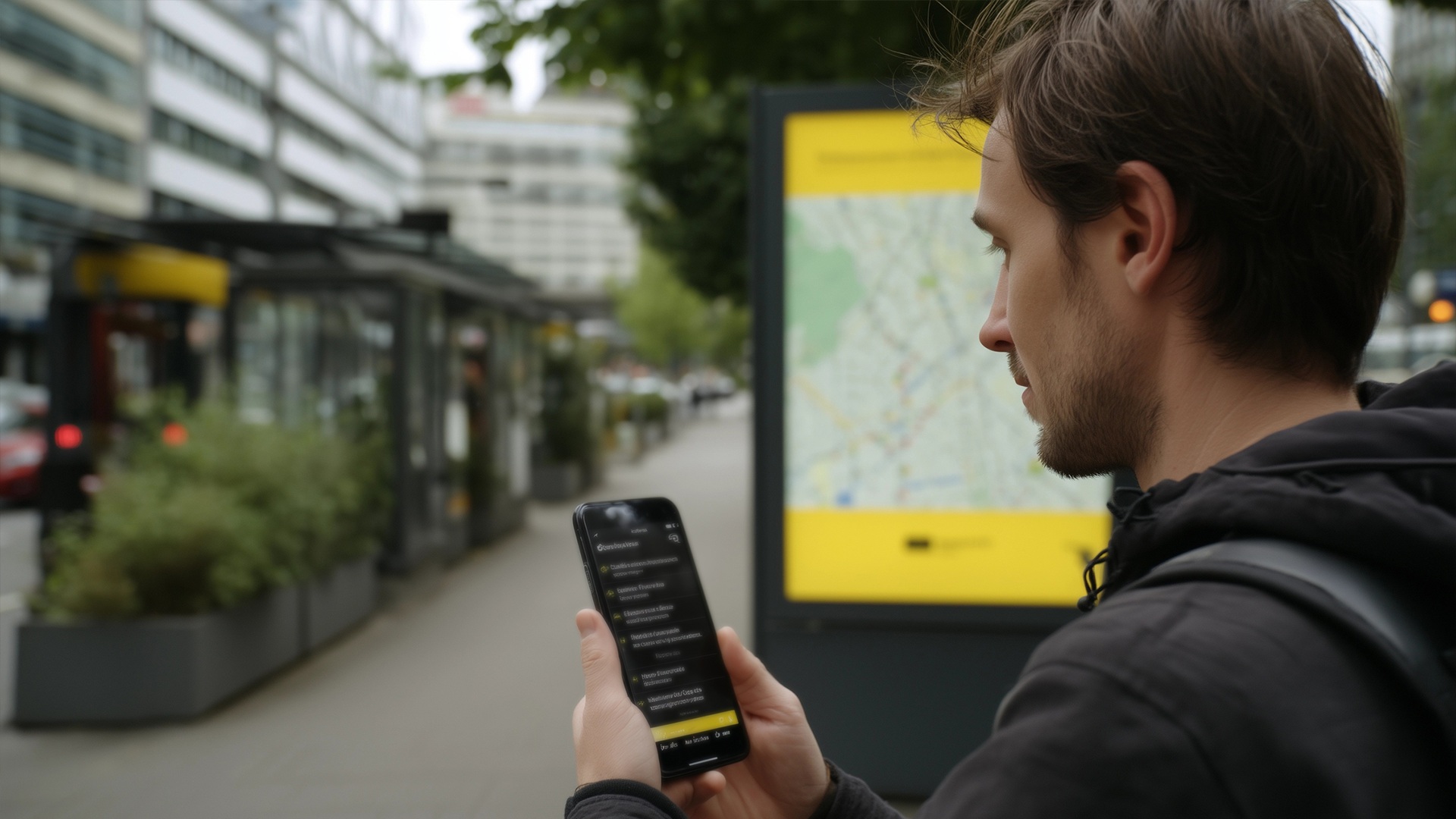MaaS – Mobility as a Service
 Tempo di lettura: 10 minutes
Tempo di lettura: 10 minutes
Multimodal travel and ticketing at your fingertips
Requirement
The growing complexity of urban mobility calls for a radical shift in the management of transport services. Citizens need flexible, digital solutions that simplify access to transportation and promote intermodality. Public administrations, in turn, require tools to govern mobility in an integrated and efficient way.
Municipia’s MaaS solution was designed to meet these needs, enabling a digital ecosystem that aggregates and harmonizes the entire mobility offering—both public and private—into a single platform accessible via mobile app. The solution fully complies with the national MaaS4Italy guidelines and standards, and is integrated with the national Data and Service Repository for MaaS (DSRM).
Multimodal trip planning
At the heart of the solution is the intelligent trip planning feature, which allows users to compare, combine, and choose among the various available transport modes—public transit, shared cars, bikes, scooters, and pedestrian mobility.
The multimodal routing algorithm suggests optimal itineraries in real time by integrating data on service availability, traffic conditions, schedules, and disruptions. It also considers user preferences regarding transport modes and travel options such as duration, cost, comfort, and service level. A solution designed to ensure maximum fluidity and personalization in the travel experience.

Integrated Ticketing
Through the mobile app, users can access a unified digital payment system: whether it’s a single transport mode or a multimodal journey involving public transit, shared mobility services, or parking, every trip can be purchased in one seamless transaction via the app’s integrated wallet. The app not only displays available transport options with their respective prices, but also enables digital ticket validation and direct access to services via QR code, NFC, or license plate recognition, where applicable.
For MaaS operators—whether transport providers, in-house companies, or local authorities—this system enables centralized and optimized management. It offers real-time, transparent reporting, in-depth analysis of urban mobility flows, and accurate revenue sharing among all stakeholders, based on agreed clearing rules designed to maximize efficiency and transparency.

Real-Time Mobility Information
Municipia’s MaaS solution also integrates an advanced real-time infomobility system, providing users with geolocated static and dynamic information on public transport stops and schedules, availability and location of shared vehicles, parking areas and restricted traffic zones, traffic conditions, events, and road network disruptions. Through push notifications and live updates within the app, users can make informed decisions and adjust their travel plans based on actual mobility conditions.
For public administrations, the infomobility module serves as a strategic tool for managing demand, enhancing the user experience, and optimizing the transport network—thanks to data collection and analysis from sensors, operators, and users.

Gamification and Rewards
To encourage responsible mobility choices, the MaaS solution includes a gamification system that anonymously and securely tracks users’ travel behavior—including trips made with personal vehicles such as bicycles. Each action earns points, which increase based on the transport mode used and its sustainability. Once predefined thresholds are reached, accumulated points can be redeemed for rewards: public transport tickets, shared mobility services, discounts, or benefits at participating local businesses.
A simple and engaging mechanism to promote conscious travel decisions and strengthen the connection between citizens and their territory.

Web App for Mobility Management and Governance
The MaaS platform includes an integrated back-office designed to provide public administrations with a comprehensive environment for configuring, monitoring, and analyzing services. Each component of the platform—travel planner, ticketing, infomobility, gamification—is managed through a web interface that enables autonomous control of operational parameters and integration with third-party systems.
The travel planner is customizable based on local needs, allowing for interface personalization and route suggestion logic. Routing functions are enhanced through integration with mobility service data, using NETEx standards for public transport schedules and fares, GBFS for shared mobility, and API-based integration for parking services, in line with European interoperability standards. Integration specifications follow the national MaaS for Italy guidelines, ensuring alignment with data exchange models, technical standards, and interoperability requirements.
The ticketing component enables booking and purchasing of travel passes directly within the planning module, interfacing with the ticketing systems of integrated transport and mobility operators. It includes detailed monitoring of transactions and active integrations, with support for commercial APIs and GBFS data standards for shared mobility providers.
The infomobility module allows for the publication of geolocated alerts and updates on disruptions, events, and changes to transport services directly within the app, offering a direct communication channel with users. Accessibility features are also included, such as high-contrast layouts, voice control, screen readers, and simplified views to meet the needs of users with disabilities.
The gamification system is managed through a dedicated back-office section, where point assignment rules can be defined based on user behavior—including walking or cycling with private bikes—and thematic campaigns can be set up. Accumulated points can be redeemed through a digital catalog offering travel passes, discounts, or benefits at affiliated merchants. Behavior tracking and rewards are integrated across the mobile app, with customizable onboarding and user profile sections.
Finally, the web app includes an advanced analytics and KPI dashboard module, enabling real-time monitoring of integrated mobility service performance. Dashboards provide indicators on usage, service quality, and sharing operator KPIs, supported by automatic alerting systems and advanced data analysis tools.

